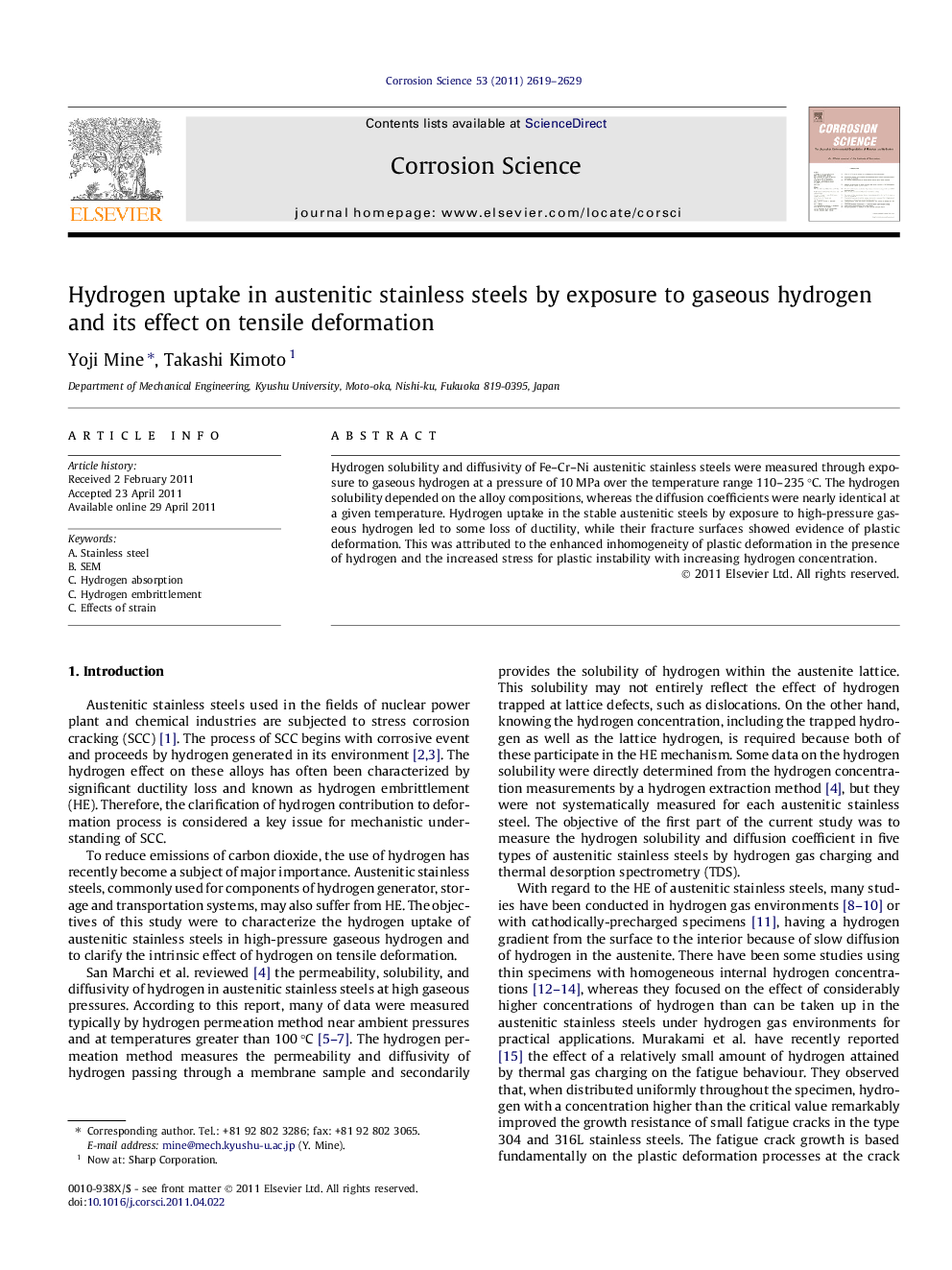| Article ID | Journal | Published Year | Pages | File Type |
|---|---|---|---|---|
| 1470029 | Corrosion Science | 2011 | 11 Pages |
Hydrogen solubility and diffusivity of Fe–Cr–Ni austenitic stainless steels were measured through exposure to gaseous hydrogen at a pressure of 10 MPa over the temperature range 110–235 °C. The hydrogen solubility depended on the alloy compositions, whereas the diffusion coefficients were nearly identical at a given temperature. Hydrogen uptake in the stable austenitic steels by exposure to high-pressure gaseous hydrogen led to some loss of ductility, while their fracture surfaces showed evidence of plastic deformation. This was attributed to the enhanced inhomogeneity of plastic deformation in the presence of hydrogen and the increased stress for plastic instability with increasing hydrogen concentration.
► Hydrogen solubility and diffusivity were measured through exposure to hydrogen gas. ► Solubility was dependent on alloy compositions but diffusivity was independent. ► Hydrogen effect on deformation microstructure was metallographically examined. ► Enhanced inhomogeneity of deformation was responsible for ductility loss by hydrogen. ► Stress for plastic instability increased with increasing hydrogen concentration.
